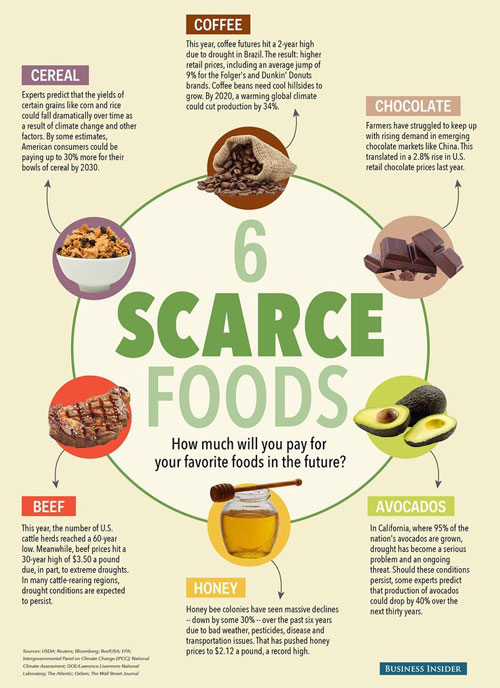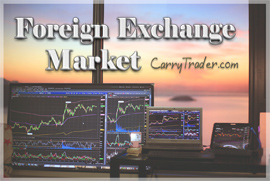
Trading Soft Commodity Assets
The term commodity refers to commercial items delivered by different producers that share uniform quality and a common value.
The history of commodity trading starts 6.500 years ago, during the early Sumerian civilization. Nowadays, there are tens of commodity exchanges worldwide offering the chance to individual investors to profit from commodity price fluctuations. There are six main categories of commodities:
(1) Precious Metals (gold, silver, platinum etc.)
(2) Industrial Metals (copper, aluminum etc.)
(3) Energy Assets (crude oil, natural gas, etc.)
(4) Agricultural Commodities (corn, coffee, soybeans, sugar etc.)
(5) Livestock (hogs, cattle, and feeder cattle)
(6) Other Commodities (rubber etc)
Full information about the categories of commodities and their assets are found below in this article.
Financial Instruments for Trading Commodities
There is a great number of financial instruments used for commodity trading:
(1) Standard Futures and Options
(2) Exchange Traded Commodities or ETCs (Commodities traded in organized exchange markets are called Exchange Traded Commodities)
(3) Forward Contracts and SWAPS
(4) Contract for Differences (CFDs)
(5) Exotic Options and Binary Options
(6) Commodity ETFs
(7) Trading Commodity Stocks
Benefits for Commodity Investors
There are many benefits for those trading commodities, here are some key points:
(1) Portfolio Diversification
Enriching an investment portfolio with commodities can bring balance to a portfolio as the price of commodities doesn’t correlate with equities and bonds.
(2) Inflation Hedge
Commodities are considered a hedging shield against inflation.
(3) Variety of Investing Methods
There are many different ways to invest in commodities including futures, options, ETFs, and commodity stocks.
(4) High Liquidity and Tight Transaction Cost
The commodity markets enjoy high daily volumes and high liquidity and that translates to low transaction cost.
(5) Almost Perfect Information
The commodity markets enjoy the almost perfect information. There are many information centers, hundreds of specialized analysts and thousands of websites dedicated exclusively to commodity investors.
(6) Ability to Trade any Market Conditions
Commodity Traders can easily go long (buy) or short (sell) according to their expectations.
(7) Suitable for all Types of Investors
Traded Commodities are flexible products that can be used by any investor no matter the size of its portfolio.
All Important Commodities per Category
Precious Metals
- Gold | Silver | Platinum | Palladium
Energy Commodities
- WTI Crude Oil | Brent Crude | Natural gas | Heating Oil
- Ethanol | Gulf Coast Gasoline | RBOB Gasoline (reformulated gasoline for oxygen blending)
- Propane | Purified Terephthalic Acid (PTA)
Industrial Metals
- Copper | Lead | Zinc | Tin | Aluminium | Aluminium alloy
- Nickel | Cobalt | Molybdenum | Recycled steel
Agriculture Commodities
- Corn | Wheat | Cocoa | Cotton | Coffee | Sugar
- Soybeans | Soybean Meal | Soybean Oil
- Oats | Rough Rice | Rapeseed | Milk | Orange Juice
Livestock Commodities
- Lean Hogs | Live Cattle | Feeder Cattle
Other Commodities
- Rubber | Palm Oil | Wool

The World’s Greatest Commodity Exchanges
Here is a list of Global Commodity Exchanges and links to their websites:
► Chicago Mercantile Exchange (CME) (US including NYMEX, CBOT and Kansas City Board of Trade)
► London Metal Exchange (LME) (UK)
► Euronext (LIFFE) (EU)
► Dalian Commodity Exchange (DCE) (China)
► Multi Commodity Exchange (MCX) (India)
► Tokyo Commodity Exchange or TOCOM (Japan)
► Global Board of Trade (GBOT) (Africa)
► Bursa Malaysia Derivatives (MDEX) (Malaysia)
► Pakistan Mercantile Exchange Limited (PMEL) (Pakistan)
MORE ON CARRYTRADER
| ■ COMPARE PROVIDERS | ► Brokers for Carry Traders | » Investigating Money | ||||
| ■ GLOBAL MARKETS | » Gold |
■ Trading Soft Commodities
CarryTrader.com (c)







